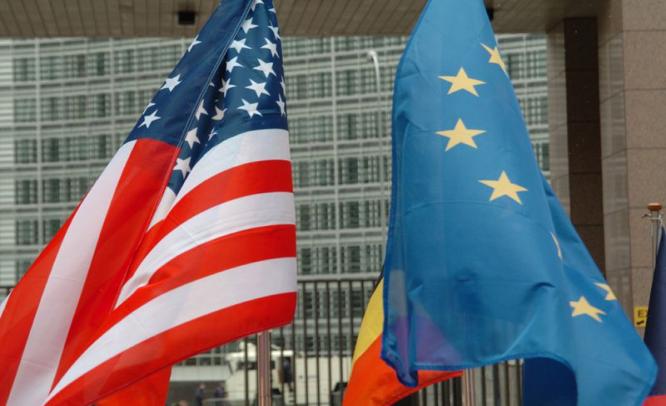It is possible that, as a result of the talks some form of transnational super regulator could be formed, which would take a lead on financial regulation over the two financial super powers .
July 08, 2013 : The European Union is all set to push for an agreement on banking and financial services as a key part of this week’s historic trade talks with the U.S. which may see the introduction of an American European super regulator. The agreement would give a host of benefits to the U.K., given the role of the country in the global economy. It is possible that, as a result of the talks some form of transnational super regulator could be formed, which would take a lead on financial regulation over the two financial super powers. However, there is opposition to the agreement with certain factions of America’s trade negotiation team resisting the calls, fearing it is a push by the U.K to protect the Square Mile. But the agreement is receiving support from most of the European states. The financial crisis and ensuing bank aberrations including multiple frauds by top banks in the U.K. including HSBC, Royal Bank of Scotland accused for supporting money laundering activities and infringement of LIBOR, have clearly demonstrated the need for stricter banking regulations and transparent banking globally. The U.S. has introduced the Dodd Frank Act to regulate the activities of Wall Street and enforce stricter guidelines, which include placing trading restrictions on financial institutions. International Finance Magazine had brought about stories on the Dodd Frank Act in U.S., Financial Conduct Authority in the U.K. and also carried a spate of stories on violation of banking rules in Singapore and London.
It is still uncertain on how the transnational agreement would affect the domestic regulators. The U.K. is also looking for the removal of certain barriers to allow more trade in the U.S., this assumes significance especially at a time where U.K. is recovering from its worst ever economic slump and looking to increase its exports and manufacturing activities to boost its economy and GDP, if the agreement is successful British firms could save more than £ 1 billion. Talks for the Transatlantic Trade and Investment Partnership will get underway tomorrow in Washington DC, the talks are expected to be held by both sides for one week and if the decks are cleared the agreement could take its shape by 2014. The talks are being led by Ignacio Garcia Bercero, EU’s chief negotiator and his counterpart from the U.S. Dan Mullaney.
Europe Angry on U.S. Spying?
The much talked about agreement between EU and U.S may take a hit with revelations of broad U.S surveillance of EU offices, particularly in Germany which has angered Europe. Latest disclosures from Edward Snowden, the former American technical contractor for the United States, National Security Agency and whistleblower who has revealed that NSA bugged European Union offices and at least half a billion phone calls, e-mail communications were trapped by U.S., this has angered European nations, adding fuel to fire, the denial of airspace to Bolivian President has complicated issues so much that Bolivia and Iceland are now contemplating citizenship to the whistleblower and the talks have definitely taken a back seat.
European parliament’s foreign affairs committee head, Elmar Brok reiterated that “The spying has taken on dimensions that I would never think about from a democratic state,”
“How should we still negotiate if we must fear that our negotiating position is being listened beforehand”.
Discontent is at its peak in another European superpower, Germany, not only because of the sheer volume of scrutiny but also its citizen demand for privacy is deeply ingrained. President Obama’s visit to Berlin earlier last month was welcomed by protestors who had placards having Obama’s pictures showing “Yes we scan” and using or depicting Martin Luther King Jr and Obama, the former reading “I have a dream” the latter with “I have a drone”
The package is yet to be endorsed by the European parliament, where it is already encountering criticism, before becoming law.

